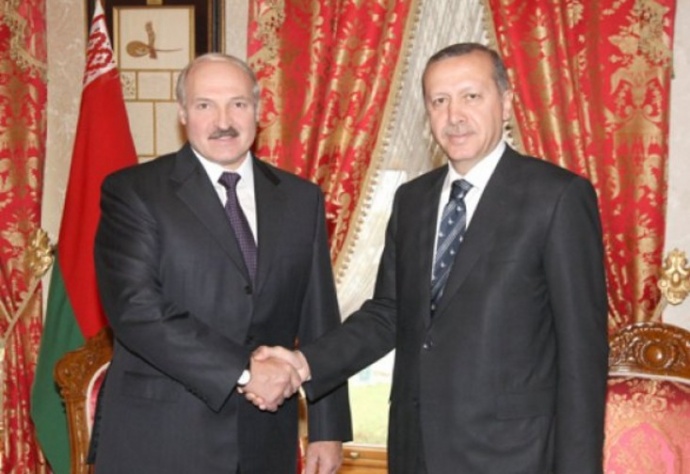Minsk counts on strategic partnership with Ankara
 The situation has not changed
The situation has not changed

The Turkish leadership wants Turkey to become a regional power. Ankara would like to take a dominant position in the eastern Mediterranean, the South Caucasus and in the Black Sea basin. Turkey also shows interest in the post-Soviet states of Central Asia and the Russian regions with the Turkic population. Minsk seeks to establish a strategic partnership with Ankara during the “Turkish ascent to power” while the latter requires any, including minor and not-so-powerful partners, and is interested in cooperation.
Turkish President Recep Tayyip Erdogan is likely to visit Belarus on July 29th, 2016. Despite the military coup attempt, the visit has not been cancelled. In early August, he will also visit Moscow.
The collapse of the Soviet Union opened the way for Turkey’s active penetration not only in the Turkic republics of the former USSR, but also in the Russian regions. Turkey promotes herself primarily in three areas: culture, religion and economy. Over the last quarter century, various groups were in power in Ankara. However, the expansion policy to the former Soviet Union has remained unchanged. Turkish political elites seem be in a full consensus in this regard.
After the collapse of Saddam Hussein’s regime in Iraq, the “Arab Spring” and the fall of Hosni Mubarak’s regime in Egypt, as well as the dismantling of the Syrian state, Turkey has become the most influential state in Western Asia. Theoretically, only Iran may affront Ankara, but it is preoccupied with confronting Saudi Arabia, on which Egypt is financially dependent. Alas, all the countries in the region, which previously have counterbalanced Turkey, are either in crisis or in confrontation with each other.
Turkish ambitions base on 80 million population, which grows by 1 million people annually and GDP of circa USD 800 billion. Currently, Turkey is a developed industrial state with a sufficiently strong engineering school and a growing military-industrial complex.
The unsuccessful military coup attempt would lead to the concentration of power in Erdogan’s hands and may be a starting point for Turkey’s more ambitious and active foreign policy. Turkey is anticipated to depart from the West and step up its cooperation with Moscow, which, however, is unlikely to be long-term and large-scale. Largely, due to the fact, that Moscow and Ankara have a conflict of interests in the region. In addition, both, Erdogan and Putin want to be the No. 1. Therefore, exacerbation of Russian-Turkish relations is only a matter of time.
The Belarusian authorities are attempting to expand the field for political manoeuvre. Turkey’s active penetration in the post-Soviet space may relax Russian influence. Economy is important too, especially given the significant drop in exports to Russia and potential drop in exports from Belarus due to the import substitution efforts undertaken in Russia, including military products.
Like Belarus, Turkey has a special relationship with Qatar, which actively supports the Muslim Brotherhood movement ideologically close to the Turkish leadership.
As usual, Minsk is attempting to play on the contradictions and ambitions of different power centres. Belarus regards Turkey as an “ascending leader” who is interested in increasing its political and economic presence in the post-Soviet space. Belarusian-Turkish relations may develop like Sino-Belarusian: overt and covert political cooperation between Ankara and Minsk will promote economic contacts and cooperation in military and military-technical field. The authorities have already announced, that the Belarusian missile programme used Turkish experience too.
Image: by24.org
Subscribe to our newsletter




Situation in Belarus
Constitutional referendum: main consequences


 Video
Video
How to count the political prisoners: are the new criteria needed?


 Video
Video
Paternalism In Decline, Belarusian Euroscepticism, And The Influence Of Russia


 Video
Video











